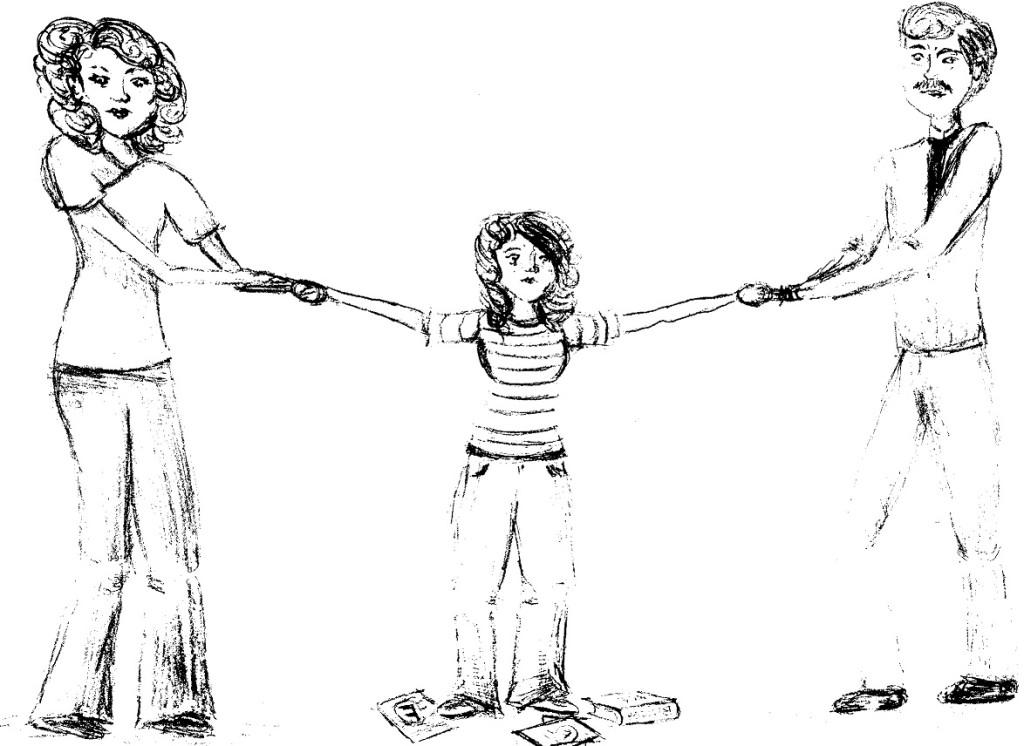Nearly half of parents in the United States are divorced, in the midst of divorce, or have a close relative who is divorced. As surprising and sad as this is, many children struggle with the transition of their parents no longer being together. Often, the two parents go off to live separate lives, with different homes, and occasionally new partners. Divorces can also lead to court disputes over the custody of belongings, houses, and most importantly, the children.
Stuck in the middle of their parents’ battle, kids often feel they have to pick between their parents, which is an impossible burden to place on a child. When divorce becomes an obstacle, sports, relationships, and grades can suffer in the process. Unfortunately, divorce issues are an unavoidable problem for many school age students.
Has a teacher ever offered to assign two textbooks to anyone in the class that needs it? This is usually due to kids in divorce situations who are constantly bouncing between households. Studying for school can become very difficult to coordinate when there is more than one place a child goes to after school. In this way, it isn’t always the kid’s fault for mediocre grades. Part of doing well in school is effort, yes, but some issues are inescapable.
In addition to schoolwork, sports can also be affected by this loss of consistency in the home. Naturally, kids will function best when they are able to develop a routine, but when they need to be at sporting events and practices on time with all their gear in order, different troubles can arise regarding transportation and readiness. Perhaps the gear was left at Dad’s house after practice on Friday, but for Saturday practice he/she is with Mom. Sticky situation for the kid, stickier if both parents work, which is likely.
Mr. Smith, a social studies teacher at Weedsport Middle/High School, agreed to do an interview on divorced families.
“Kids that come form a strong nuclear family tend to do better [than kids in divorce situations] because they have more support at home. They have more resources and overall stability,” said Mr. Smith. He continued, “Together, the parents’ number one priorities should be the children, and since they learn from the parents, school starts in the home. School doesn’t start on the school grounds. The home is the first schoolhouse, and the parents are the teachers.”
Mr. Smith estimates that about 40 percent of his students live in divorced families, and a lot of them struggle because of it. The solution to this issue is unclear, because divorce situations can vary. The best thing for teachers to do, Mr. Smith says, is to be adaptable and open minded to all circumstances for the sake of the child.
“The [modern] teacher is probably going to have to take on a greater role of making sure that the social well-being is being watched and monitored-not just the academics,” Smith said.
He himself tries to be open with his students, and encourages them to come to him whenever they feel they don’t have anyone else to turn to. This admirable philosophy is comforting to students, and undoubtedly helps to lessen the burden placed on his pupils when their support systems are not as strong as they should be. Mr. Smith has had several students come seeking his help, and he says he will do what he can to help them succeed in school and in life.












